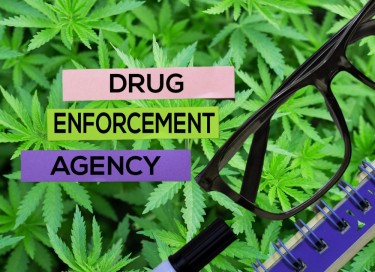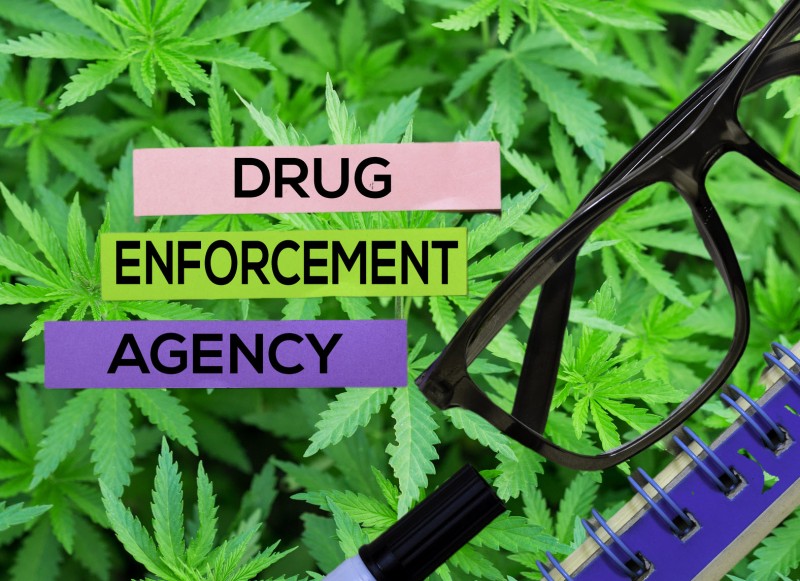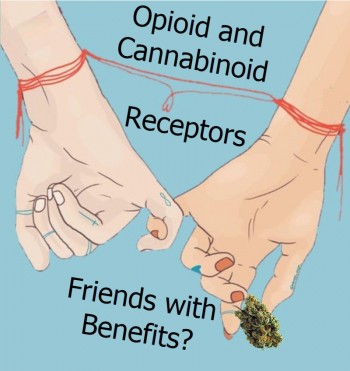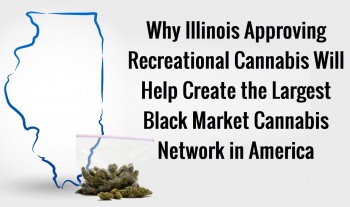
A representative from the Drug Enforcement Administration (DEA) has expressed the agency's intention to dispel any misunderstandings surrounding its drug scheduling review process, emphasizing a commitment to transparency. The DEA is currently in the process of potentially reclassifying marijuana and aims to ensure clarity in its decision-making. The official noted that the analysis of recommendations from health authorities can take up to six months, coinciding with the timeframe since the commencement of the current cannabis assessment by the agency.
Unveiling DEA's Discussion on Cannabis Scheduling
In the most recent instalment of the "Prevention Profiles: Take Five" series by the agency, DEA Senior Prevention Program Manager Rich Lucey engaged in a conversation with DEA pharmacologist Buki Ebeigbe regarding the scheduling process, particularly its correlation with the ongoing cannabis review. This marks the first occasion where officials from the agency have delved publicly into the current analysis of marijuana's Schedule I status.
Lucey emphasized the significance of transparency, aiming to rectify misconceptions surrounding the process. He underscored the importance of initiatives like podcasts to elucidate the process, striving to dispel the notion of secrecy surrounding it, which often leads to perceptions of arbitrariness.
Legislators and advocates have made transparency a priority. Although the DEA acknowledged receiving the recommendation from the U.S. Department of Health and Human Services (HHS) to reclassify marijuana from Schedule I to Schedule III of the Controlled Substances Act (CSA), they have chosen to carry out their review independently of the HHS evaluation and have not released any additional information to the public.
"That's correct," Ebeigbe affirmed. "The process is underway. We have received the HHS analysis, and we are currently in the process of formulating the recommendation regarding cannabis scheduling to DEA Administrator Anne Milgram."
"Once the information is compiled and the corresponding document, the eight-factor document, is prepared, it undergoes internal review," she explained, referring to the comprehensive analysis the agency is conducting on the impacts of cannabis. "Ultimately, the administrator will decide on its placement—whether to amend it, remove it, or take any other action."
Lucey also weighed in on the intricate nature of drug scheduling reviews and their implications for timing.
"At present, it's a matter of 'wait and see.' HHS has completed their portion, and now DEA is undertaking its evaluation, involving the eight-factor analysis. This process can take anywhere from three to six months," he remarked. "It's not a quick turnaround; it never is."
Pressure Mounts for DEA's Prompt Action
While Lucey provided a general overview of the drug scheduling review process, the timeline is worth noting. HHS submitted its Schedule III recommendation to the DEA last August, meaning that more than six months have passed since the drug agency initiated its review. There is considerable pressure to expedite this process.
Vice President Kamala Harris recently joined the chorus, urging the DEA to conclude its cannabis review "as quickly as possible," denouncing the continued placement of marijuana in Schedule I alongside substances like heroin as "absurd" and "patently unfair."
The expectation is that upon completion of the review, the DEA will announce its decision in the Federal Register, followed by a public comment period. When asked about the role of these comments in the possibility of rescheduling, Ebeigbe stated, "That is uncertain—that remains unknown."
Nevertheless, she emphasized earlier in the discussion that "viewers must understand that we thoroughly review every comment and are obligated to respond publicly." She also mentioned the potential for the agency to schedule a hearing after the public comment period, allowing individuals to express their views on a broader scale if they wish.
Ebeigbe also staunchly defended the scheduling review process, emphasizing its non-arbitrary nature and the imperative for all agency actions to be legally defensible.
One legal aspect under scrutiny pertains to international treaty obligations, particularly whether moving cannabis to Schedule III would put the U.S. at odds with United Nations (UN) Single Convention treaties. This argument has been advocated by some conservative lawmakers and prohibitionists, despite varying interpretations among legal experts.
In a separate development, HHS Secretary Xavier Becerra recently stood by his agency's recommendation for rescheduling during a Senate committee hearing. He also advised cannabis lobbyist Don Murphy to approach the DEA directly for answers regarding the timing of their decision.
Reports suggest that certain DEA officials are resisting the Biden administration's push for rescheduling, contesting the HHS findings regarding marijuana's safety profile and medical potential, according to sources who spoke anonymously to The Wall Street Journal.
The Biden administration has faced pressure from two coalitions representing military veterans and law enforcement, including a group with DEA's Milgram among its members, to expedite the rescheduling of marijuana.
According to a recent poll, President Joe Biden's actions regarding cannabis could bolster his electoral prospects. The survey revealed an increase in the president's favorability ratings after respondents were informed of the potential for marijuana to be rescheduled under the review initiated by Biden.
DEA Faces Calls for Swift Action Amidst Increasing Pressure
As the DEA navigates its cannabis review process, calls for expeditious action have intensified. Vice President Kamala Harris has recently added her voice to the chorus, urging the agency to conclude its review "as quickly as possible." Criticism persists regarding the classification of marijuana alongside substances like heroin, with many labelling it as "absurd" and "patently unfair."
The anticipation is that upon completion of the review, the DEA will publicly announce its decision in the Federal Register, followed by a designated period for public comments. However, the role of these comments in the potential rescheduling remains uncertain, as highlighted by Ebeigbe.
Despite the uncertainties, Ebeigbe emphasises the agency's commitment to review every single comment received and respond publicly thoroughly. Additionally, there's a possibility of scheduling a hearing after the public comment period, allowing for broader stakeholder engagement.
Amidst the push for rescheduling, the DEA faces internal resistance from certain officials disputing the HHS findings. Reports suggest that disagreements persist regarding marijuana's safety profile and medical potential. Nevertheless, pressure continues from various quarters, including coalitions representing military veterans and law enforcement, to hasten the rescheduling process.
In a noteworthy turn, recent polling suggests that President Joe Biden's stance on cannabis could positively impact his electoral prospects, indicating a spike in his favorability ratings following awareness of the potential for marijuana rescheduling under his administration's review.
Bottom Line
The DEA is undergoing increased scrutiny as it navigates the cannabis rescheduling process amidst mounting pressure for swift action. Vice President Kamala Harris has joined the call for expedited review, criticizing the current classification of marijuana. Despite uncertainties regarding public comments and internal resistance within the agency, there's a commitment to thorough review and transparency. President Joe Biden's stance on cannabis could potentially bolster his electoral prospects, according to recent polling. As the process unfolds, stakeholders await the DEA's decision, which holds significant implications for drug policy and public health.






